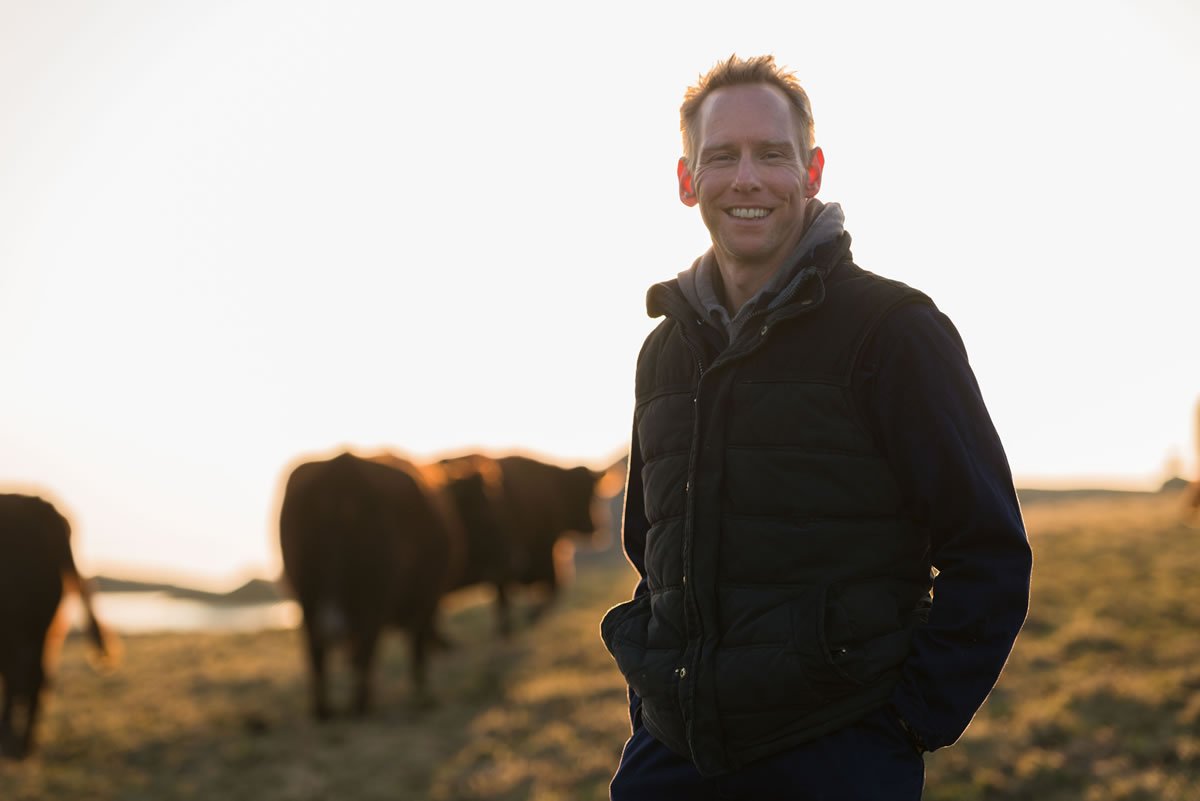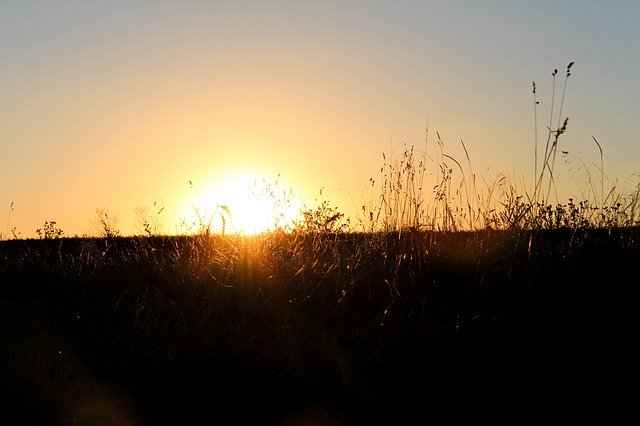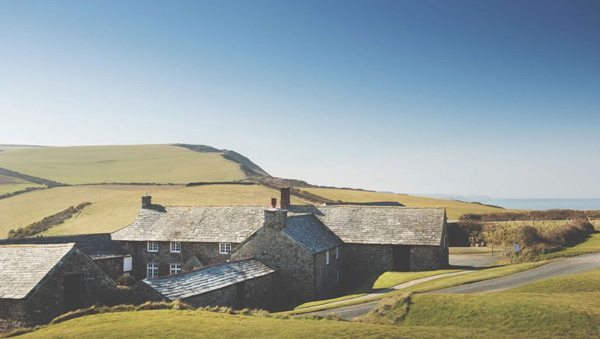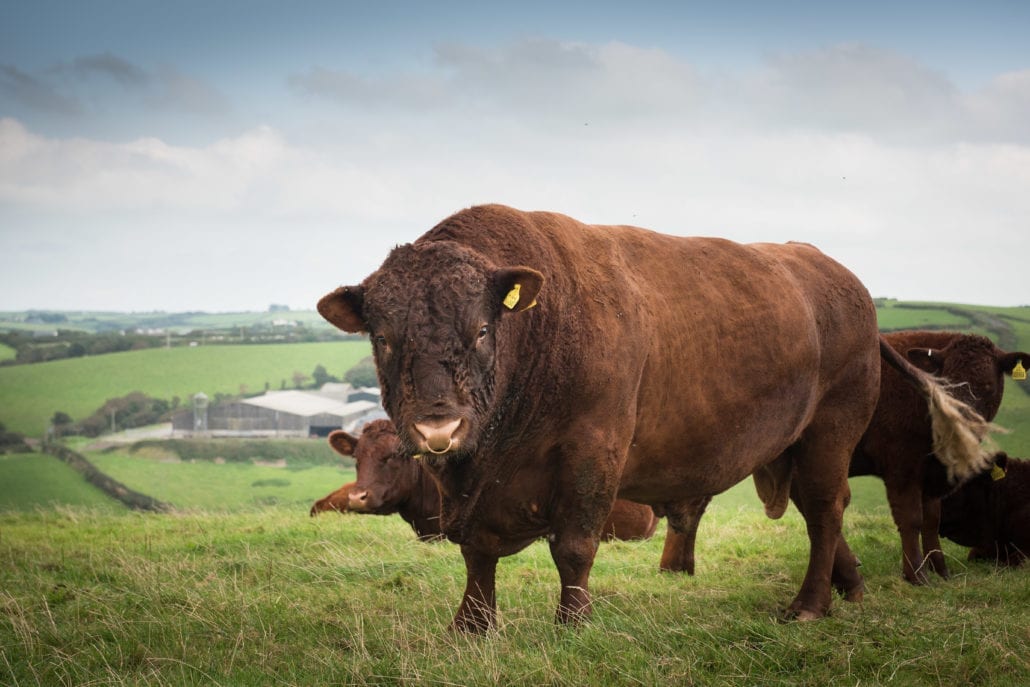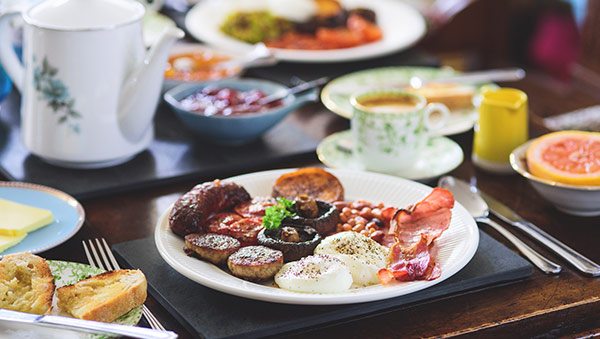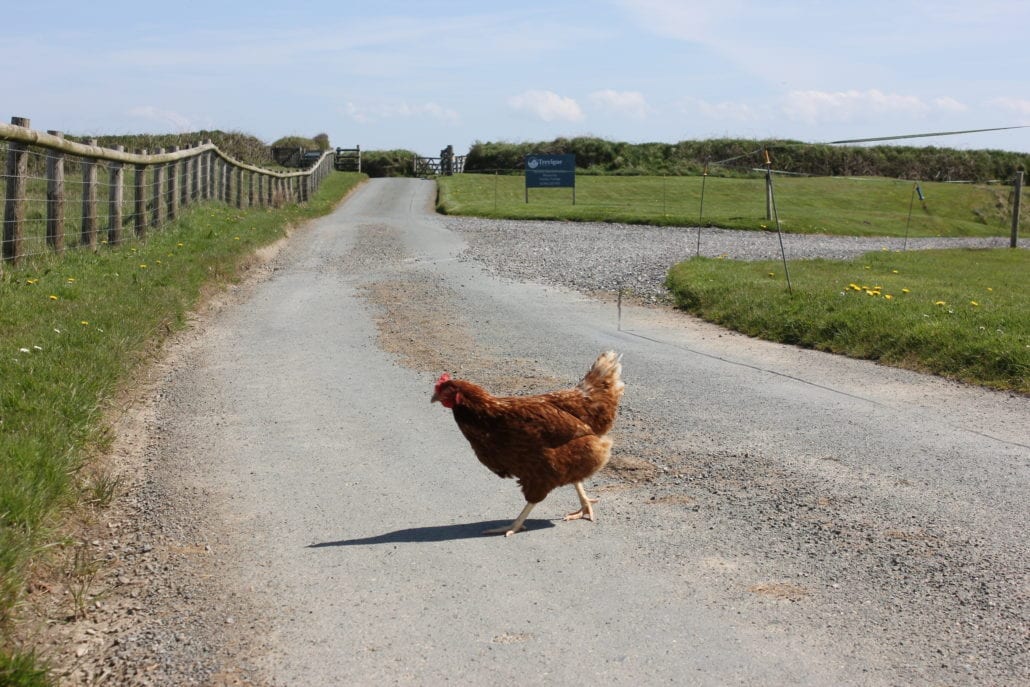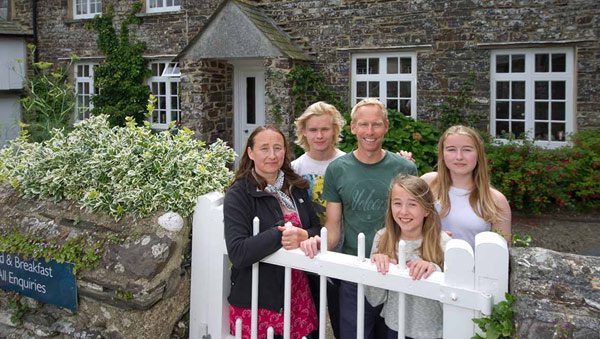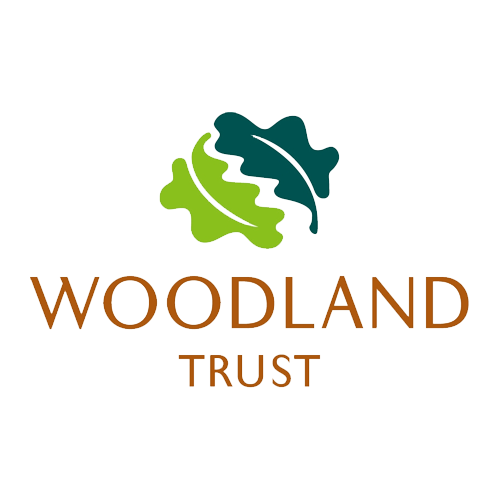Here on our cliff top farm we’re blessed to have one of the most lust-worthy locations in Cornwall, perhaps in the whole of the UK! One of the best things about our coastal B&B Trevigue is that we are the third generation of Crockers to act as custodians of this National Trust-owned farm, and we live and breathe this elegant 700-year-old farmstead.
We take meticulous care to ensure that we farm the land in a responsible and sustainable manner, collaborating with the elements up here on our clifftop to ensure that we work with nature rather than against it. We are immensely proud of what we have created here at Trevigue and so thought we’d tell you all about it and why we do what we do!
Summer on the Farm
Summer here on the farm is an exciting time; the wildflowers provide a beautiful backdrop of colour. Pink campions, bluebells, ox-eye daisies, hawthorn and more decorate our hedgerows at this time of year and provide a stunning habitat for butterflies, birds and bees. The Cornish hedge provides such a significant part of our landscapes and heritage and is a vital nature reserve for pollinators, insects and flowering plants. When left to flourish naturally, Cornish hedgerows provide a vibrant habitat where a multitude of species can thrive.
The geological, ecological and cultural significance of the hedge cannot be overestimated. Rabbits, foxes, badgers and all types of birds and insects use the hedgerows as ‘wildlife corridors’ which they use to safely traverse the stunning Cornish landscape. These naturally-occurring roadways protect the animals which rely on them.
Naturally-Reared Cows and the Importance of Bio-Diversity
The 180-acres of farmland where we live is also home to our herd of Pedigree cattle (Ruby Reds) which are the perfect breed for the North Cornish climate. Ruby Reds are native to the area and the beautifully natural habitat in which they thrive is where this breed has been reared since the late 1500s. We allow the cows to graze the land naturally as they have been doing for hundreds of years- we don’t rush or interfere with their grazing because by leaving nature to do its thing is the most responsible and natural way of farming. It’s a philosophy in which we passionately believe and the reason why our herd is happy, healthy and in harmony with the environment. We supply to Piper’s Farm with our grass-fed pedigree North Devon beef grazing on nearly organic soil and are very proud to embody their philosophy.
Calving
At this time of the year we are currently nearing the end of our calving season and expect to have 25 calves by the end of June. Calving season starts at the end of March and it’s always a busy time keeping a check on our beautiful herd and monitoring the calving mothers to ensure they are happy and healthy.
Grass-Fed Beef in Cornwall
Our cows stay outside for 12 months of the year, grazing the rough moorland grass, heather-strewn pastures and golden gorse up here on our beautiful Cornish clifftop. From the time they naturally wean off their mothers milk at (at least) 9 months old, our cows are solely fed on a diet of pure pasture; herb-rich grass, hay or silage. Unlike other beef farms where farmers feed their cows cereals 8 weeks before slaughter to “fill them out”, we never give our cattle anything extra; they only munch the grass which grows naturally up here on the cliff. This natural way of environmental farming retains the omega 3 in the beef which can only be found in beef that has purely been fed on grass (cereals cancel out the omega 3 and so it is counter-productive to producing the finest, healthiest meat).
Producing slow-growing, slowly-reared cattle by embracing an ‘old-fashioned’, traditional way of farming celebrates biodiversity. When our Ruby Reds chew the cud, this mixes with their gut flora so that there isn’t an ounce of nutrition wasted. When this is returned to the farm via their dung, the healthy gut provides food for insects and feeds the soil with good bacteria which infiltrates the grass that the cows eat, and so it continues. Healthy grass-fed cows who are farmed in this traditional way have little need for medicines as they are so naturally healthy and not interfered with by humans. Our organic slow-growing Red Rubies are helping to sustain beautiful, natural, grassland landscapes – we protect the heather and flowers which occur naturally on the farm because our cows need it to thrive.
A Bright Future on the Farm
We have lots of exciting developments happening on the farm in the coming weeks. In the next month we are expecting the arrival of some saddleback pigs. This beautiful local breed of pigs will be naturally reared here on the farm and provide locally home-reared sausages and bacon for our Bed & Breakfast guests.
We have free-range hens which roam all over the farm and provide the freshest eggs for the breakfast table. They are so free-range in fact that sometimes we have to go and hunt for the eggs in the barns and straw in the morning as they have chosen to lay elsewhere than their hen house! In addition to this, we will soon be getting six new Black Rock hens – an old fashioned breed of hen chosen for their love of outdoor living and prolific egg-laying.
Our ‘orchard’ (which was perhaps a grand name for the two ancient apple trees we started with!) will soon be fortified with the addition of 8 new fruit trees including plum and other types of eating and cooking apple, along with (very excitingly!) six nut trees. These walnut, cobnut and almond trees will need careful protection from hungry squirrels so we pick the walnuts before the squirrels like them and pickle them up in time for Christmas.
We love summer on the farm and hope that you will enjoy visiting our very special clifftop farm as it thrives and blossoms into life! Please get in touch to book your next stay and enjoy the blissful natural habitat we work hard to protect. We can’t wait to offer you a warm Trevigue welcome 🙂

